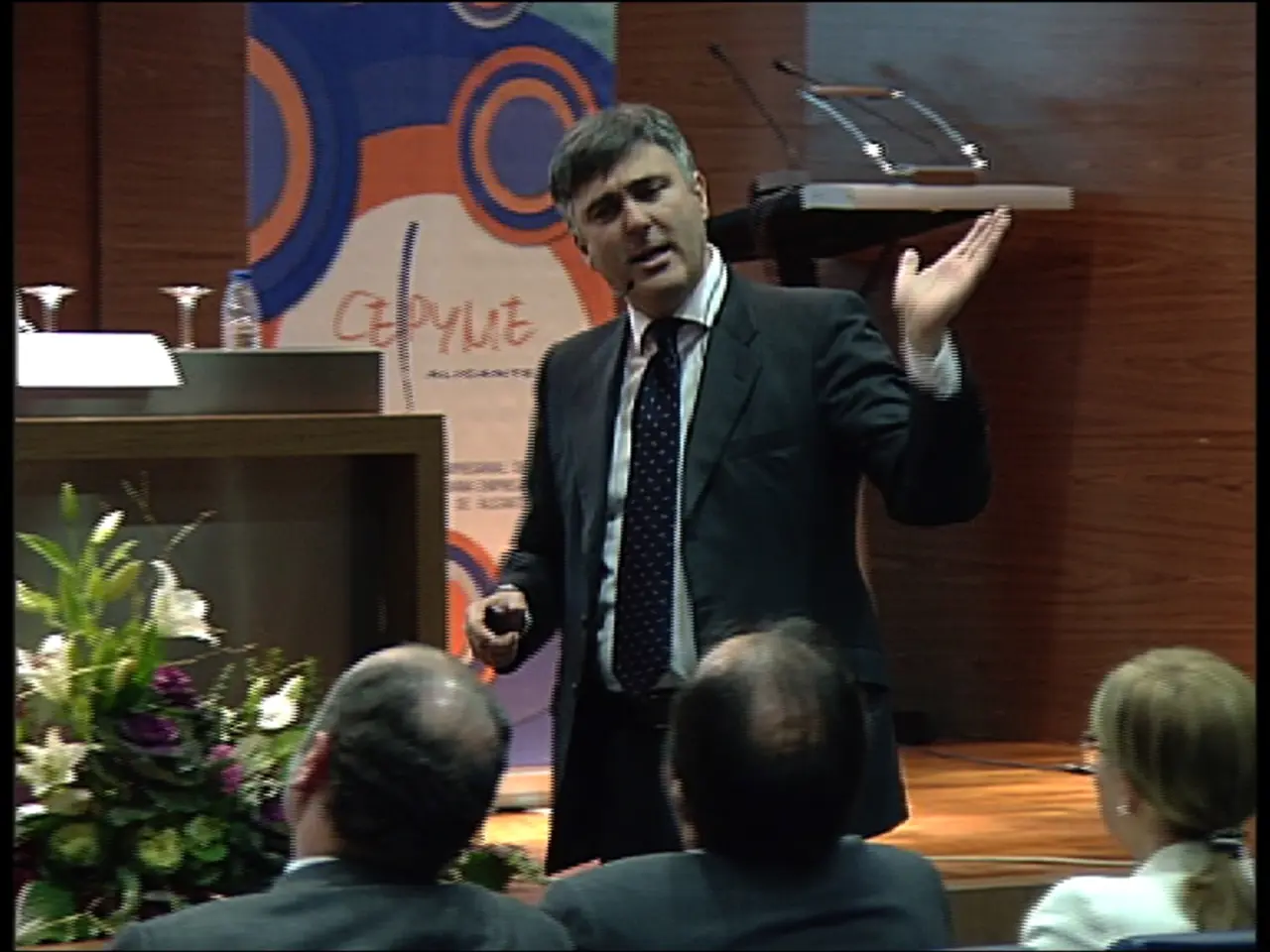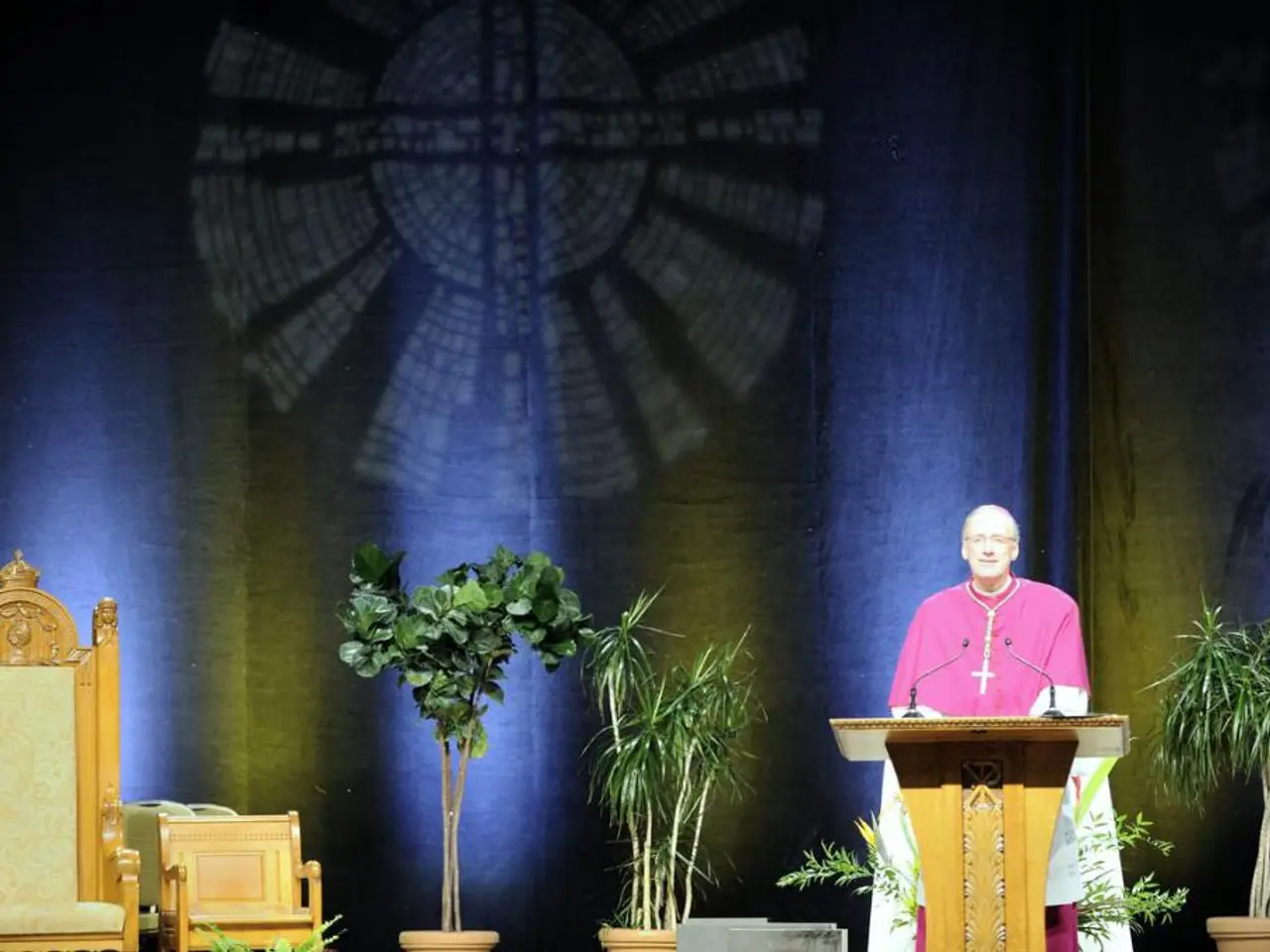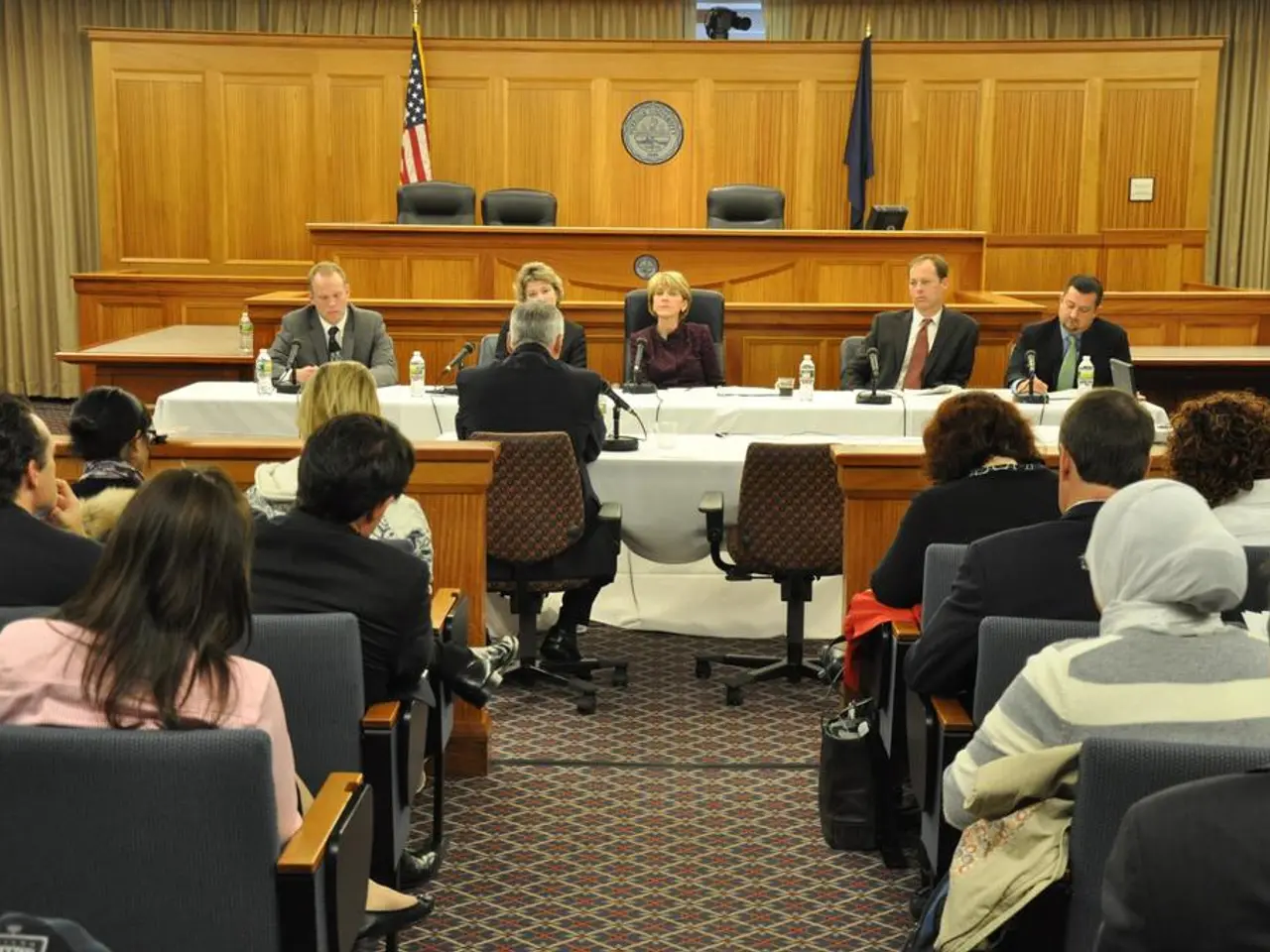Senate Republican Leader opposes Trump's proposal to abandon bipartisan practice in confirming judicial nominations
The ongoing debate in the Senate revolves around the preservation or abolition of the "blue slip" tradition, a long-standing practice that allows home-state senators to veto or approve federal judicial and U.S. attorney nominations in their states.
President Donald Trump has publicly urged Senate Republicans, including Senator Chuck Grassley who chairs the Senate Judiciary Committee, to end the blue slip tradition. Trump views it as a procedural obstacle that allows senators to block or delay his judicial and U.S. attorney nominees, particularly when those senators belong to the opposing party.
However, Senate Majority Leader John Thune has defended the blue slip tradition, emphasizing its long bipartisan use and cautious approach to modifying Senate rules. Thune sees no urgent need to change the blue slip process and prefers to focus on steadily confirming judges rather than overturning this established practice.
Senator Chuck Grassley, in response to Trump’s criticisms, has dismissed them as “personal insults” but has not indicated a willingness to eliminate the blue slip tradition. As Judiciary Committee chair, Grassley plays a key role in confirmations and respects longstanding Senate norms.
The tension in this debate lies in the balance between preserving Senate traditions that protect home-state senatorial input on nominations and the Trump administration’s desire to expedite judicial appointments by limiting such senatorial vetoes. Thune’s and Grassley’s positions emphasize maintaining procedural customs in the Senate, while Trump pushes for reducing perceived roadblocks in the confirmation process.
John Thune has also expressed that he doesn't sense any rush to change the blue slip process. Senator John Cornyn, who is facing a tough reelection battle in Texas, supports Thune and Grassley's decision on the blue slip process.
On the other hand, several Senate Republicans, including John Kennedy, support Grassley and the blue slip precedent. Kennedy believes that senators are better equipped to choose lawyers from their community for district judges. Thom Tillis opposes any change to the blue slip process and criticizes Trump's advisors on the subject. Tillis warns against setting up a political payback system by not conferring with the two Democrat members in a state.
Grassley had been surprised to see President Trump criticize the "blue slip" tradition on Truth Social. Thune stated that the key is to make sure that they're making good headway doing the list of judges that are on the President's list. Thune does not believe in doing away with the "blue slip" precedent, which considers the views of a nominee's home state senators before moving forward in the confirmation process.
This debate underscores the importance of tradition and procedure in the Senate, as well as the ongoing tension between the executive and legislative branches of government. As the confirmation process for judicial and U.S. attorney nominees continues, it remains to be seen whether the blue slip tradition will be maintained or if changes will be made to expedite the process.
Senator John Thune defends the blue slip tradition, emphasizing its long bipartisan use and cautious approach in Senate rules, while President Donald Trump pushes for reducing perceived roadblocks in the confirmation process by potentially eliminating this established practice. Senator Thom Tillis opposes any change to the blue slip process and criticizes Trump's advisors on the subject, warning against setting up a political payback system by not conferring with the two Democrat members in a state.








